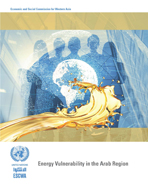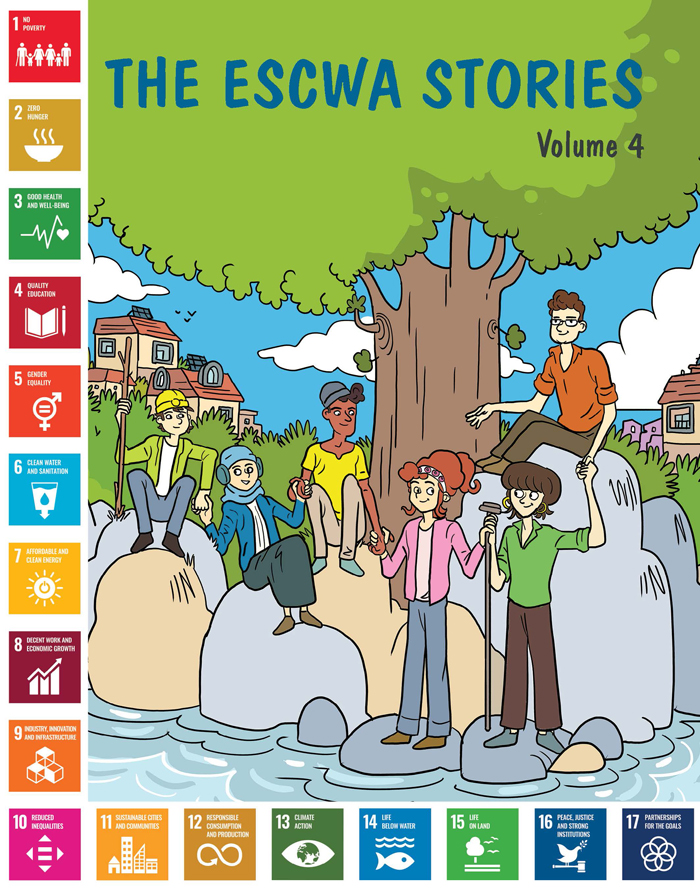
ESCWA Publication: E/ESCWA/SDPD/2019/1
Country: Arab region
Publication Type: Reports & studies
Cluster: 2030 Agenda and SDG Coordination
Focus Area: Natural resource sustainability
Initiatives: Sustainable urban development
SDGs: Goal 7: Affordable and Clean Energy
Keywords: Arab countries, Carbon dioxide, Climate change, Economic growth, Energy efficiency, Energy prices, Supply and demand, Sustainable development, Energy consumption, Productivity, Statistical data, Social development, Economic development, Fossil fuels, Energy services, Energy resources
Energy Vulnerability in the Arab Region
January 2019
This publication seeks to identify sources of energy vulnerability in the Arab region that prevent member States from being able to ensure universal access to affordable, reliable and modern energy services for current and future generations. It also assesses strategies to tackle energy vulnerability effectively while at the same time providing perspectives on how different groups can contribute to solving these issues. Building on the Sustainable Development Goals (SDGs) of the 2030 Agenda for Sustainable Development, the publication aims to move beyond the 2030 horizon to mainstream the concept of sustainable long-term energy management in the Arab region and address vulnerabilities that result from the continuation of a business-as-usual scenario.
This publication demonstrates that progress in the Arab region on energy issues can no longer be addressed separately from other socioeconomic development goals, but rather, is a primary condition for sustainably powering progress. Addressing energy vulnerability in the Arab region is a development priority that is both integral to the success of the 2030 Agenda for Sustainable Development and spans beyond it. The ability to harness the pool of natural resources in the Arab region through appropriate choices of infrastructure, technology, governance and sustainable management practices will be key in creating economic opportunities for young people and improving their living standards; it is a key driver for socioeconomic development and the attainment of gender equality, empowerment of women and intergenerational equity, which are at the heart of driving long-term prosperity in the Arab region.
Arab Sustainable Energy Pathways video
Related content
Natural resource sustainability
,
This publication seeks to identify sources of energy vulnerability in the Arab region that prevent member States from being able to ensure universal access to affordable, reliable and modern energy services for current and future generations. It also assesses strategies to tackle energy vulnerability effectively while at the same time providing perspectives on how different groups can contribute to solving these issues. Building on the Sustainable Development Goals (SDGs) of the 2030 Agenda for Sustainable Development, the publication aims to move beyond the 2030 horizon to mainstream the concept of sustainable long-term energy management in the Arab region and address vulnerabilities that result from the continuation of a business-as-usual scenario.
This publication demonstrates that progress in the Arab region on energy issues can no longer be addressed separately from other socioeconomic development goals, but rather, is a primary condition for sustainably powering progress. Addressing energy vulnerability in the Arab region is a development priority that is both integral to the success of the 2030 Agenda for Sustainable Development and spans beyond it. The ability to harness the pool of natural resources in the Arab region through appropriate choices of infrastructure, technology, governance and sustainable management practices will be key in creating economic opportunities for young people and improving their living standards; it is a key driver for socioeconomic development and the attainment of gender equality, empowerment of women and intergenerational equity, which are at the heart of driving long-term prosperity in the Arab region.
Arab Sustainable Energy Pathways video



